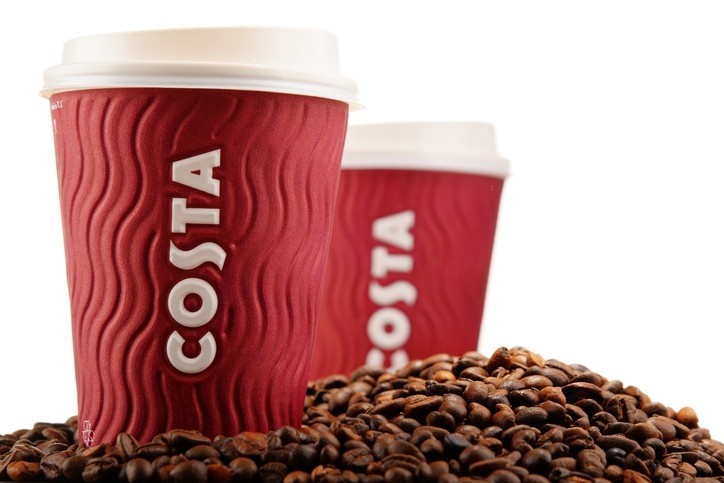‘Building a world-class coffee platform’: Coca-Cola on Costa expansion plans

Coca-Cola announced its $4.9bn (£3.9bn) acquisition of the world’s second largest coffee chain (after Starbucks) last year. Founded in London in 1971, Costa now has operations in more than 30 countries, including China, Europe, Asia Pacific, the Middle East and Africa.
The rationale for the acquisition was simple: “Our vision is to use Costa’s platform to expand in the growing coffee category,” said Coca-Cola as it completed the acquisition in January this year.
While Costa’s coffee shops have been the cornerstone of the business to date, Coca-Cola envisions a future where on-the-go formats and at-home packages and pods build up its dominance in the coffee sector.
The importance of multiple revenue streams
The acquisition helps Coca-Cola spring into the global coffee category (which is growing at 6% a year and is valued at around $0.5 trillion) – in which to date its presence has been minimal. In acquiring Costa, Coca-Cola gains the Costa brand, nearly 4,000 retail outlets, coffee vending operations, Costa’s roastery and for-home coffee formats.
While retail has been the cornerstone of Costa’s business to date, Coca-Cola sees the opportunity to use its system to build up multiple formats and occasions. In fact, retail becomes simply a part of the larger strategy for coffee, says Coca-Cola.
“Underneath the Costa umbrella, we see multiple revenue streams,” said John Murphy, executive vice president and CFO, The Coca-Cola Company, speaking in the Deutsche Bank Global Consumer Conference last week. “The retail store business represents the lion's share of today's base, but as we go forward, we're proud to serve the express model [vending], ready-to-drink and solutions for at-home in packaged bins, or - in the future - in pods.
“We see a tremendous opportunity ahead to participate in the hot coffee segment, where we today have a very low position.”
Having multiple revenue streams is important because it allows Costa to capture multiple serving occasions, said Murphy. The traditional Costa stores offer barista-made, hand-crafted coffee: tapping into consumers who are seeking an out-of-home experience. Meanwhile, packaged Costa coffee allows consumers to brew the coffee at home. And the addition of Coca-Cola RTD products add the ‘grab and go’ occasion to the portfolio.
Need for speed
Coca-Cola launches its first Costa product – a chilled canned RTD coffee – this month, just six months after the acquisition of the company was completed. The line is launching in Great Britain this month, followed by Poland and China (markets where Costa already has a strong presence). The line will debut with classic latte, caramel latte and black Americano.
The coffee uses the same Mocha Italia Signature Blend coffee beans used in all of Costa’s coffee drinks – ‘providing consumers with an authentic coffee experience with a real caffeine hit’ - and Coca-Cola says the drinks have around 30% less sugar than other RTD coffees on the market in Great Britain.
Meanwhile, Coca-Cola is moving forward with efforts to boost Costa’s Express self-serve barista quality coffee vending machines.
“Since the acquisition finalized in January, we've been moving with speed to accelerate this business with particular focus on the approach to serve the Express and the ready-to-drink,” said Murphy. “We’re launching RTD this month in the UK, rolling out to at least six markets over the course of the coming months.”
Costa currently has over 9,000 Express vending machines, which will be expanded across multiple markets later this year, with an accelerated rollout in 2020. This will be done in partnership with Coca-Cola’s bottling system.
As well as building on the number of products and revenue streams, Coca-Cola will focus on building to Costa brand, said Murphy.
“Costa is also going to benefit from some of the partnerships the broader Coke system enjoys. Two that come to mind, the Cricket World Cup that's under way at the moment in England and the Olympics next year in Tokyo. So we see those partnerships giving Costa a tremendous opportunity to build its brand position.”
















